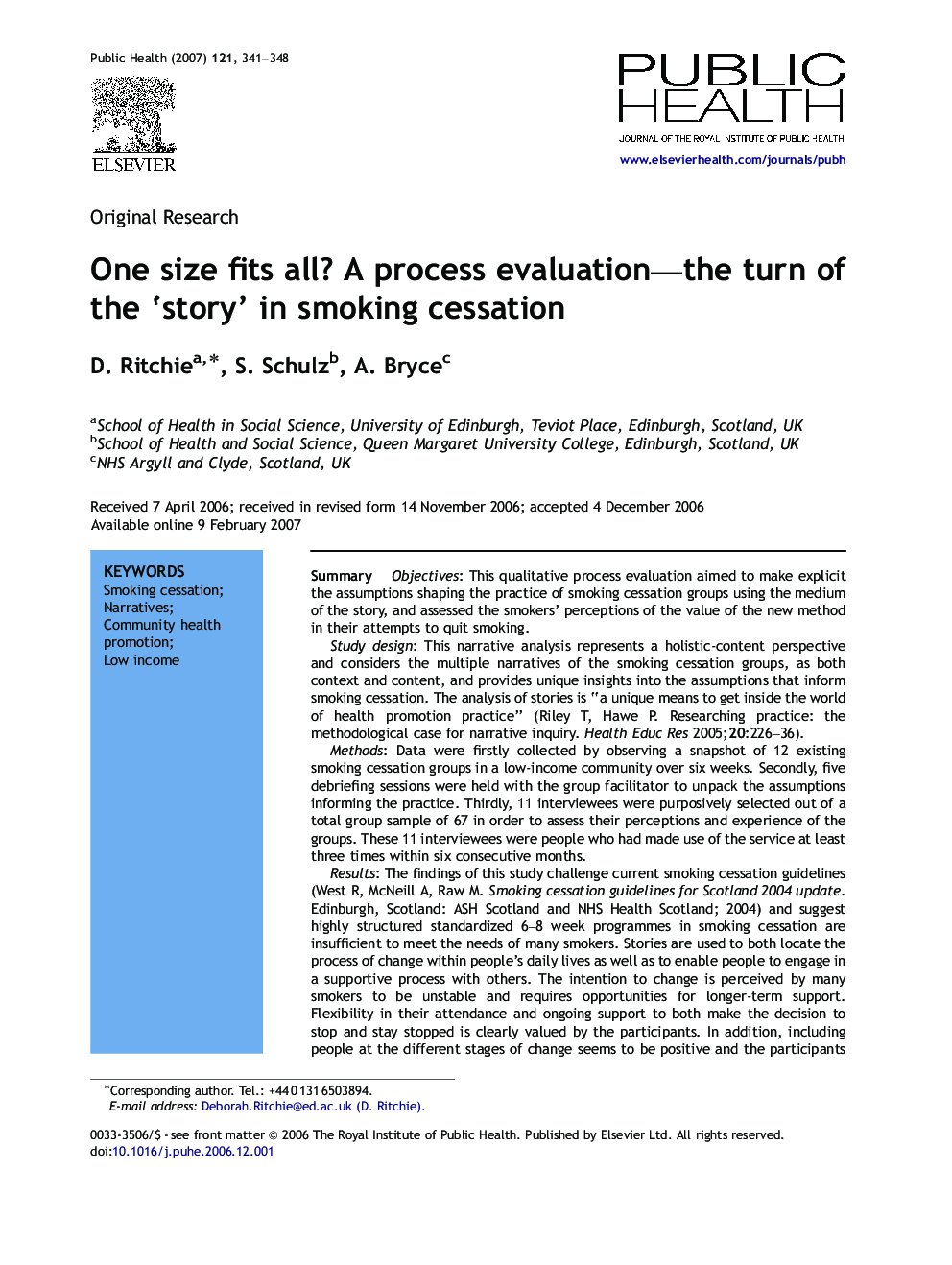| Article ID | Journal | Published Year | Pages | File Type |
|---|---|---|---|---|
| 1088644 | Public Health | 2007 | 8 Pages |
SummaryObjectives: This qualitative process evaluation aimed to make explicit the assumptions shaping the practice of smoking cessation groups using the medium of the story, and assessed the smokers’ perceptions of the value of the new method in their attempts to quit smoking.Study design: This narrative analysis represents a holistic-content perspective and considers the multiple narratives of the smoking cessation groups, as both context and content, and provides unique insights into the assumptions that inform smoking cessation. The analysis of stories is “a unique means to get inside the world of health promotion practice” (Riley T, Hawe P. Researching practice: the methodological case for narrative inquiry. Health Educ Res 2005;20:226–36).Methods: Data were firstly collected by observing a snapshot of 12 existing smoking cessation groups in a low-income community over six weeks. Secondly, five debriefing sessions were held with the group facilitator to unpack the assumptions informing the practice. Thirdly, 11 interviewees were purposively selected out of a total group sample of 67 in order to assess their perceptions and experience of the groups. These 11 interviewees were people who had made use of the service at least three times within six consecutive months.Results: The findings of this study challenge current smoking cessation guidelines (West R, McNeill A, Raw M. Smoking cessation guidelines for Scotland 2004 update. Edinburgh, Scotland: ASH Scotland and NHS Health Scotland; 2004) and suggest highly structured standardized 6–8 week programmes in smoking cessation are insufficient to meet the needs of many smokers. Stories are used to both locate the process of change within people's daily lives as well as to enable people to engage in a supportive process with others. The intention to change is perceived by many smokers to be unstable and requires opportunities for longer-term support. Flexibility in their attendance and ongoing support to both make the decision to stop and stay stopped is clearly valued by the participants. In addition, including people at the different stages of change seems to be positive and the participants appear to incorporate without difficulty those who are still smoking with those who have stopped. Many find the insights of those at the different stages very valuable in their own attempts to quit. Current practices of excluding smokers who are still unsure of their own motivation are challenged.Conclusions: The hypotheses generated by the work suggest that flexible services that offer support to a range of smokers are beneficial and valued. In addition, programmes that are tailored to the individual's context and culture, as well as the individual's personal life situation, through the medium of the story, are valued and acceptable to the participants.
